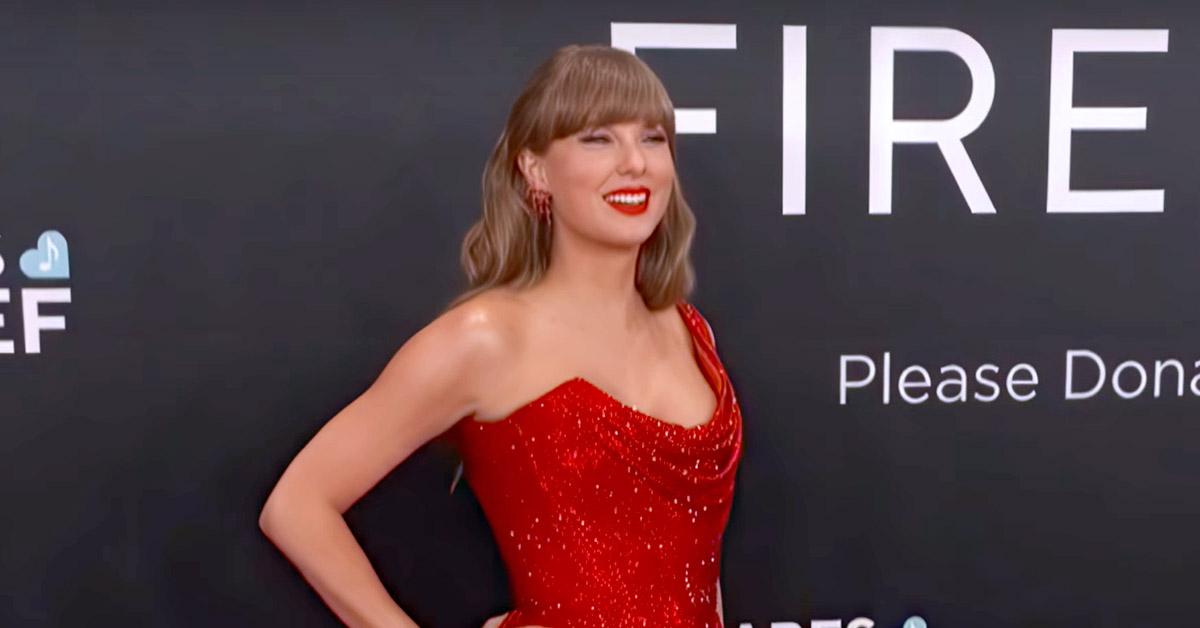Taylor Swift’s new song ‘The Fate of Ophelia’ sparks controversy over similarities to Poland’s Eurovision 2024 hit ‘The Tower.’ Polish singer Luna responds with humor. Read more.
Taylor Swift – the global pop phenomenon whose every song seems to strike gold – did it again. On October 3, she released her new album, “The Life of a Showgirl“, and as usual, the internet exploded. But while fans analyzed every lyric and note, one particular community spotted something oddly familiar in one of the songs: the Eurovision fandom. Did the American superstar take a little too much “inspiration” from the world’s favorite song contest?
The Viral Comparison: “The Fate of Ophelia” vs. “The Tower”
The track in question, “The Fate of Ophelia”, quickly sparked a wave of comparisons on TikTok, Instagram, and X (formerly Twitter). Countless users pointed out its strong similarity to “The Tower”, Poland’s 2024 Eurovision entry performed by Luna. Fans claimed the melody and rhythm followed “the exact same melodic line, just slower.” The debate grew rapidly – many even urged Luna to sue Swift for alleged plagiarism.
Luna – the Tower (Feat. Taylor Swift) https://t.co/e9F0vh5wxI
— nevaeh ✨ (@nevaehvision) October 8, 2025
Online listeners highlighted the resemblance in the chorus’s melodic shape and phrasing. Some speculated that Swift, perhaps during her European travels, might have come across the Eurovision hit and unknowingly – or perhaps knowingly – “adopted” it.
Luna Responds with Humor
While the internet demanded revenge, Luna herself reacted with calm and wit. In an interview with plotek.pl, she said:
“I see it as a beautiful sign from the universe. I believe music is energy that flows between artists and sometimes meets in similar places. Who knows – maybe one day our musical paths will truly cross.”
But she didn’t stop there. Taking advantage of the buzz, Luna reminded fans of her upcoming Halloween release – and added a cheeky remark:
“Save the date, so you can hear it before Taylor Swift does!”
Swift’s History with Plagiarism Claims
If the story sounds familiar, you’re right. This isn’t the first time Taylor Swift has faced plagiarism accusations. In 2017, the group 3LW sued her over the famous line “cause the players gonna play and the haters gonna hate” from her mega-hit “Shake It Off”, claiming it was copied from their song.
That case dragged on for five years before it was dismissed. Swift’s defense? She claimed she had never heard of the group or the track, explaining: “My parents didn’t let me watch MTV, so I never had the chance to know them.” The court ruled that the phrase was “too simple” to be copyrighted. Will she now claim she merely missed the Eurovision semi-finals this time? Time will tell.
Copyright Clashes in the Eurovision Arena
Plagiarism disputes are hardly limited to American pop icons – Eurovision itself has a long, colorful history of similar controversies. Remember “Toy“, the hit by Netta Barzilai that won Eurovision 2018 for Israel? After her victory, Universal Music threatened to sue songwriters Doron Medalie and Stav Beger, arguing the bass line was lifted from “Seven Nation Army” by The White Stripes.
After months of negotiations—and just before the case reached court—a creative settlement was reached: Jack White, the American rock star and frontman of The White Stripes, received official songwriting credit and a share of future royalties. So the next time you hum “Toy”, remember: you’re partly singing a Jack White tune.
And the trend continues. In Eurovision 2025 alone, two fresh plagiarism allegations surfaced. Icelandic duo Væb were accused of copying the Israeli wedding hit “Hatunat Hashana“ by Itay Levi and Eyal Golan with their entry “Róa“. Later, Swedish performers faced similar claims for their song “Bara bada bastu“, allegedly echoing an Indian track. The band KAJ denied the allegations, clarifying that their accordion riff came from a licensed music sample library – well within Eurovision’s copyright guidelines.
As Luna herself put it, music may truly be “a flowing energy.” Sometimes, perhaps, it flows a little too similarly.
So what do you think? A cosmic coincidence or a blatant copy?
Listen to both tracks and judge for yourself. Could Taylor Swift really owe Luna’s lawyers a hefty check?
Listen and compare:
Poland in Euorovision 2025
“GAJA” was the name of the song performed by Justyna Steczkowska at Eurovision 2025 in Basel, Switzerland. Poland finished seventh in the first semifinal with 85 points, qualified for the Grand Final, and ultimately achieved 14th place with 156 points.
Eurovision 2025: This was Poland’s 27th participation in the Eurovision Song Contest. Poland joined the competition in 1994 and achieved its best result that same year when singer Edyta Górniak reached second place with the song “To nie ja!”.


